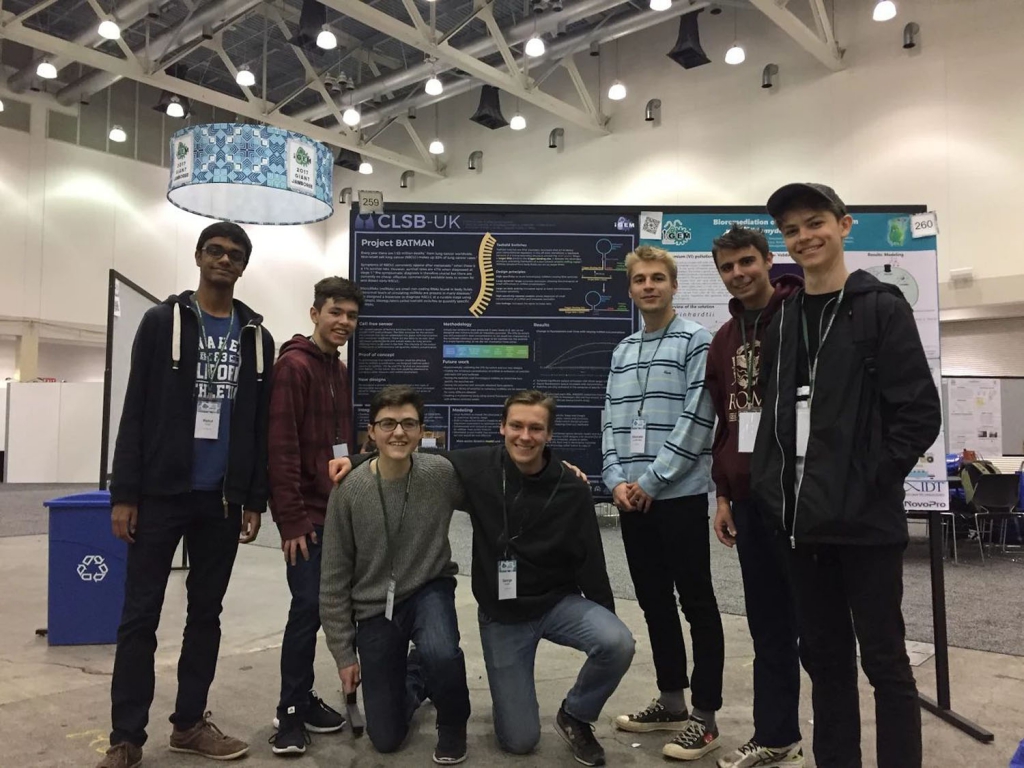City of London School pupils win gold at iGEM in developing new way to diagnose cancer
Posted on 16th Nov 2017 in School News, Technology
A team of 17-year old boys at the City of London School have won a gold medal and four special prizes at the iGEM finals in the USA, working on a novel technique to diagnose cancer easily, cheaply and at a curable stage.
The CLS team travelled to Boston after a year's hard work, entering the competition for only the second time.
Seven sixth formers, accompanied by Head of Biology Mr Zivanic and Biology teacher Dr Pattison, presented their project to the international synthetic biology community. With 295 teams and hundreds of experts from every continent, this is truly the “molecular biology World Cup,” in the words of Mr Zivanic.
The City team’s project involved detecting lung cancer early with a genetic circuit that they created. Lung cancer accounts for 1.69 million deaths annually and usually presents late. By detecting tumours early, they are far easier to operate on, massively improving survival rates. The project could be developed into a cheap and effective diagnostic tool, with real world applications.
The team designed their own genetic parts in a way that their final sensor would be usable outside the lab without need for any microbes, thus being very safe. They also mathematically modelled their project to improve their design, spoke with leading doctors and other experts to create a clinical implementation strategy (integrated human practices) as well as creating software and hardware tools. These included a synthetic biology voice assistant that works on Amazon Alexa and Google assistant, an app to speed up the design process and a £4 portable fluorometer to measure the output of their test. To top it all off, they created their own website to document their entire project, available here. They worked throughout the holidays, and spent many long nights on the project, balancing the massive amount of work with their university applications and exams.
Competing against 40 other high schools from across the world, the team were delighted to receive a gold medal, reflecting their exceptional project. The medals criteria is the same for schools, undergraduate and postgraduate teams. The fact that university teams including Stanford, MIT, Harvard and Warwick won bronze, puts City’s gold achievement into perspective.
The team were also nominated for seven special awards and won four for best software, hardware, integrated human practices and composite genetic part. They were also nominated for best education and public engagement, mathematical model and website. No high school team was nominated for or won more awards.
Richard Brookes, Acting Head, commented: “This is a tremendous achievement for the boys and staff involved. This is unique amongst British schools, and reflects the quality of thought and dedication that has gone into the project here at City of London School. We are incredibly proud of the team, and we look forward to further contributions to the progress of science from them in the future – they have certainly set the bar high for their successors in the School.”
You can find out more details on their IGEM page, where their project summary has been published: http://2017.igem.org/Team:CLSB-UK